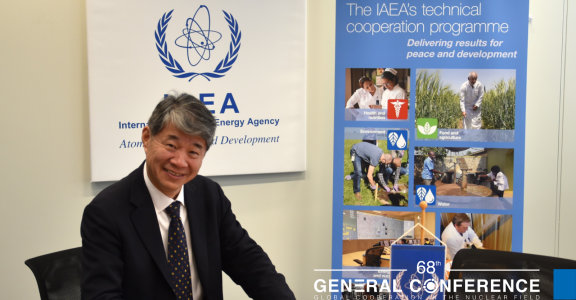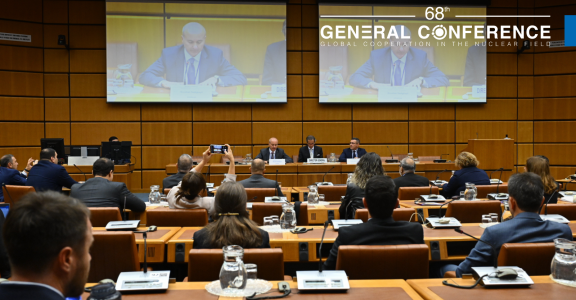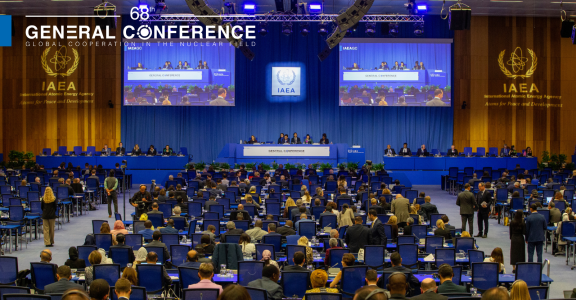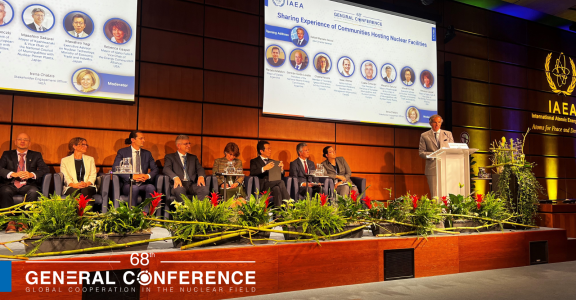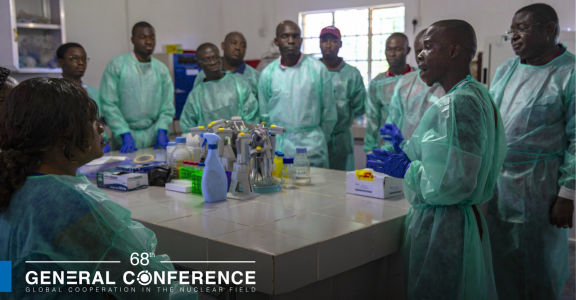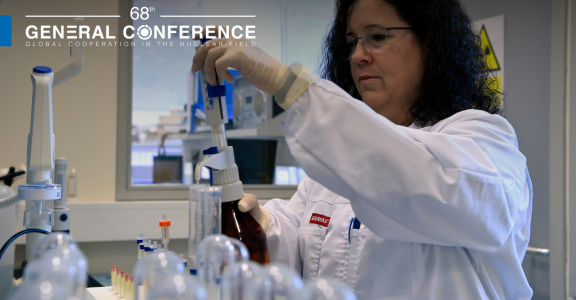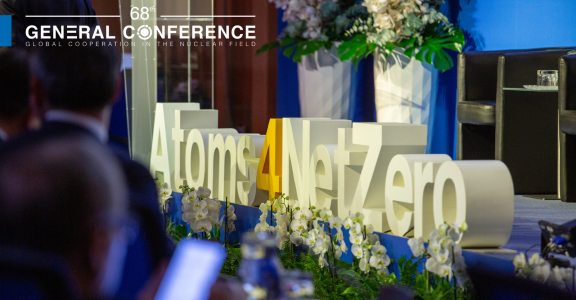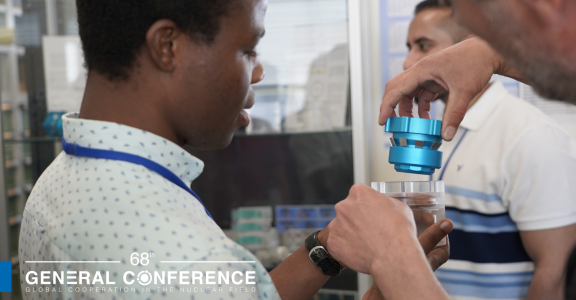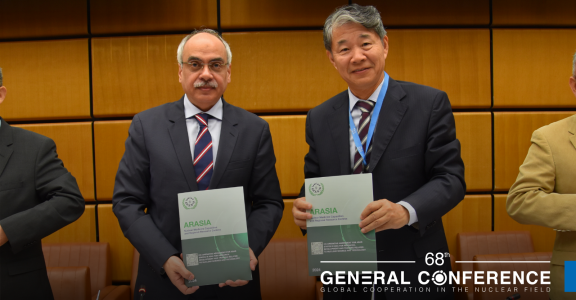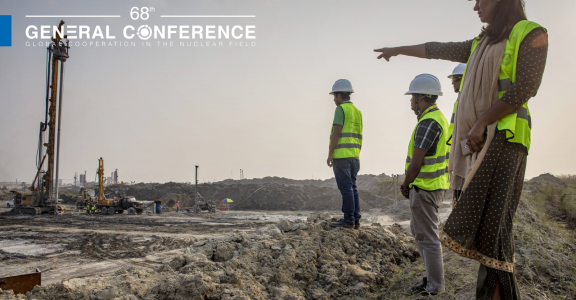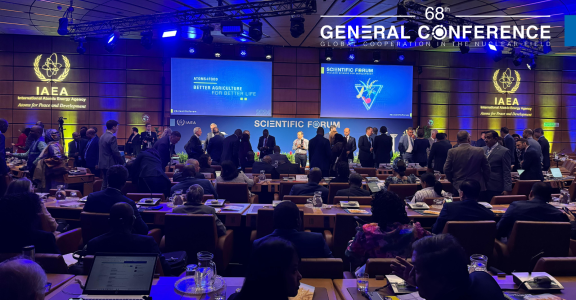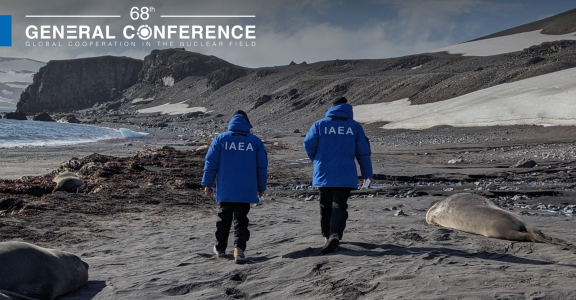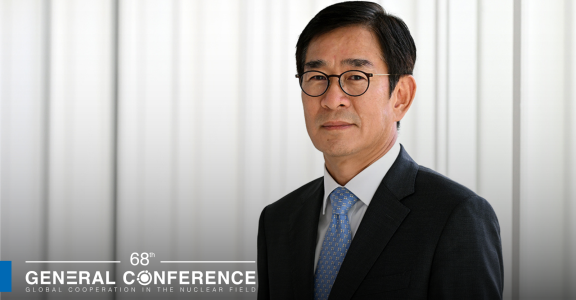Could you listen to a delegate talking about nuclear issues in Arabic while relating their words live in Chinese at the same time? The UN’s impressive team of interpreters at the VIC do this for the General Conference and over 700 other meetings each year.
Delegates at the GC can listen to key debates live in the six official UN languages thanks to the skills of the Interpretation Section at the United Nations Office in Vienna. They provide an almost-real time interpretation services in Arabic, Chinese, English, French, Russian and Spanish, as well as other languages.
In this case, in order to deal with the nuclear-specific terminology at the general conference, the UN interpreters received detailed training from the IAEA’s internal language team in advance.
Together the 75 UN interpreters and 70 IAEA translators, have been providing language services for the GC plenary and other key meetings, 29 in total over 5 days, often back-to-back until midnight.
In total, the IAEA team alone translated over 1 million words for the General Conference!
This included official documents, news articles, daily summaries and draft resolutions, to ensure that all documents were available in Arabic, Chinese, English, French, Russian and Spanish.
This dedication from both teams of polyglots allows for real-time communication among delegates and ensures that participants have all the correct information available, irrespective of their native language.







